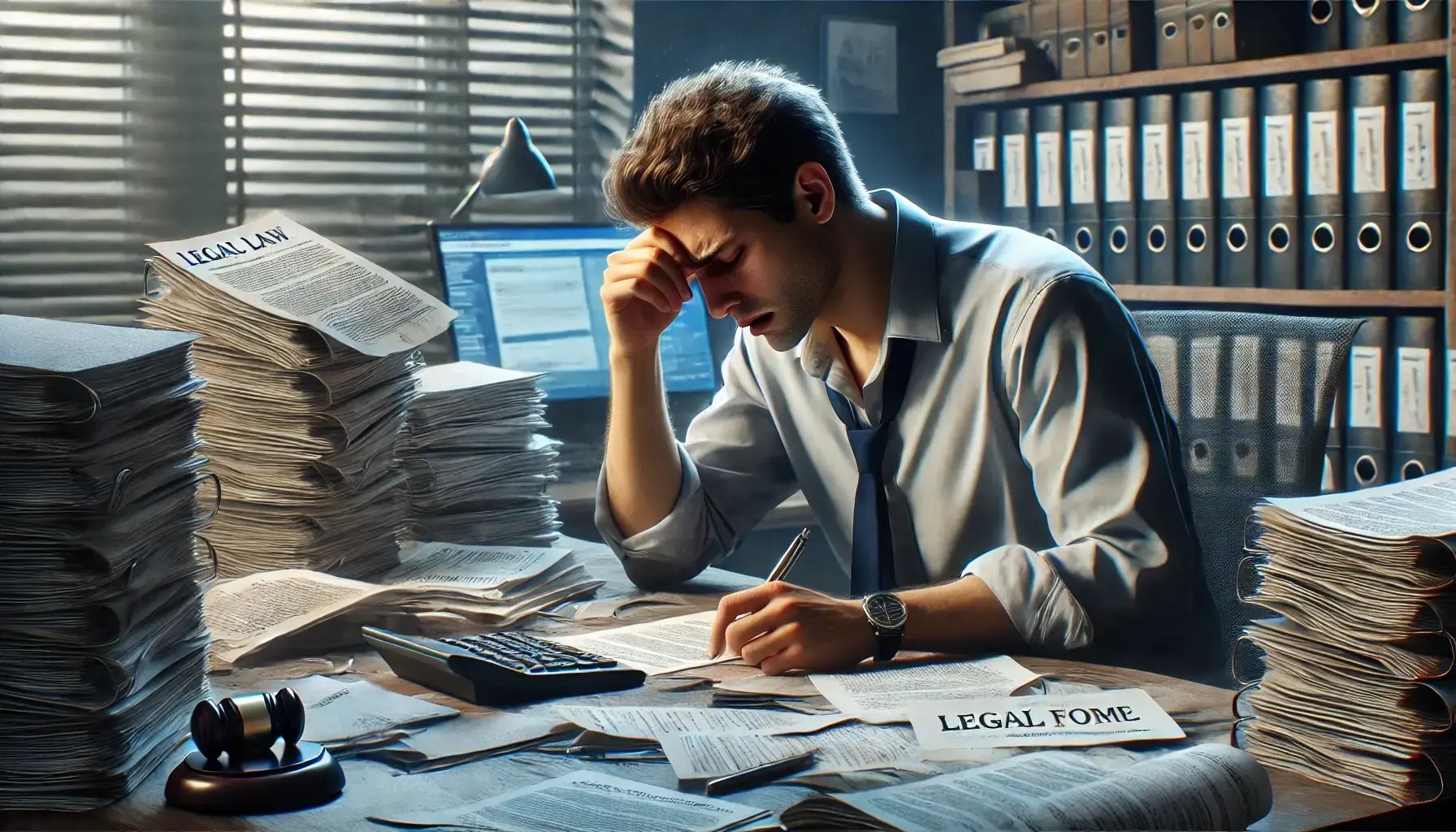Can you claim a car accident without a police report?

Legally reviewed by:
Daniel Smith August 16, 2024
Depending on what state you’re in, the police might not always respond when you call in to report an accident.
When the police do not investigate your accident, obtaining a police report about the accident may be difficult. And you will likely have heard that a police report is vital for any insurance claim.
So, what do you do? Should you make an insurance claim for your accident without a police report? Yes, you should.
While a police report is critical and will strengthen any claim, the absence of a police report will not disqualify a claim for insurance settlement. So, your claim still has a high chance of success without a police report.
In this article, we’ll also look at how to file an insurance claim without a police report, some challenges you may face, and when a report might not be necessary.
The Role of a Police Report in Car Accident Claims
But first, let's talk about what a police report is and its weight in insurance claims.
Definition and contents of a police report
A police report is a legal document made by a law enforcement officer who investigates a car crash. The general purpose of any police report is to provide an official, objective, and third-party perspective about the accident with all relevant details about it. Police reports also give as much information as possible on the causes of the accident from the officer’s view.
Relevant details about the crash form the content of the police report. Most of the time, this content includes:
- The time and location of the accident
- The information of the drivers as it appears on their license
- Driver(s) insurance information
- Vehicle type
- Vehicle registration,
- Pre-existing vehicle defects
- The extent of property damage (whether to the vehicle or other property)
- Contributing factors (like weather or road conditions)
- Information about injuries
- Safety precautions taken by drivers (seat belt use, airbag functionality)
- Whether any driver was driving under the influence of alcohol or any other substance
- The names and contact information of any witnesses
- A diagram of the accident
These requirements will, however, likely vary from state to state. Some states may not demand as much information, some states may demand more. As an example, New York requires officers to indicate if the driver was issued a dead deer/beer possession permit and the permit number.
How police reports are used in insurance claims
Police reports play a significant role in insurance claims. Since claim adjusters will likely not be able to recover most of the relevant evidence to form an objective opinion when they investigate, they rely on police reports to provide the facts.
Police reports will also influence any decision regarding fault and negligence. Since a state’s fault and negligence laws determine who should be financially liable, and the extent of liability, claim adjusters also use the information in a report to recommend settlements.
Finally, attorneys will incorporate the information provided through a police report to make a case on your behalf, when negotiating with insurers for a settlement.
Legal weight of police reports
Police reports are generally inadmissible evidence in a criminal or civil trial. State law on that (like Florida in Fla. Sat. § 316.066(4) and Wisconsin in Wis. Stat. § 346.73) is definitive.
However, the information provided by a police report may still be incorporated into a trial. For instance, the police officer who investigated the crash may be asked to testify, and other documents or facts attached to a police report may be admissible.
Filing an Insurance Claim Without a Police Report
If police reports could have such a significant role in insurance claims, how do you file a claim without one?
Process of filing a claim without official documentation
A claim filing process is not entirely different with or without official documentation. The primary difference is that with official documentation, you can attach it to your claim to strengthen your case. But without it, you file your claim with the evidence you have.
The claim filing process is similar across the board. To file a claim, you should:
- Inform the relevant insurance company. The relevant insurance company will be determined by the type of claim you intend to file (first-person or third-person).
- Get more information about your coverage. Find out if you’ll have to pay a deductible or other expenses. You should also enquire about your limits.
- Find out how to file your claim. Different insurance companies have various methods. Some use mobile apps or online forms, others may mail a form for you to fill out.
- Work with a car accident attorney to organize your claim.
- Ensure you submit your claim within the timeframe required. Depending on state law, insurance companies have specified periods within which a claim must be submitted, often 30-60 days. In New York, regulations require that no-fault claims be filed within at least 30 calendar days.
If you can’t find a clear timeframe in your policy agreement or state law, try to file as soon as reasonably possible.
Alternative forms of evidence
Without official documentation, you must have alternative evidence to back up your claim. Generally, these alternative forms of evidence should include:
Photographs and videos
You should get pictures and videos of the accident. Your pictures or videos should show the collision (if possible), any skid marks, and the location of the accident. You should also endeavor to show the damage to your vehicle and the damage to the other vehicle.
The goal here should be to be able to capture as much information as possible about the accident.
Witness statements
If anyone around witnessed the accident, try to get a signed statement from them with their contact information (phone number or address). The statement should be their version of the accident, as they witnessed it. Generally, statements from witnesses not previously related to you should further strengthen your claim.
Alternatively, you could get a video recording of them giving their statement (with their consent).
Medical records
If you sustain injuries from the accident, preserve your medical reports as much as possible. Have copies of your diagnosis, prescriptions, and bills. If you believe anything related to your injury is vital, request documentary evidence from your doctor.
If you did not sustain injuries but suffered property damage, you should also keep records of the damage or the impact of the damage. Documents like repair estimates, towing receipts, and car hire receipts are very vital.
Importance of thorough documentation
Without official documentation to back up your claim, every bit of alternative evidence you can get helps. Only by keeping a thorough and detailed record of the accident and its impact on you will your claim be successful.
Challenges of Filing a Claim Without a Police Report

Without a police report, here are some difficulties you may face in the claims process:
Difficulty in establishing fault
Without a police report, all other information about the accident will likely be biased and subjective. Some other contributing factors (to the accident), may also remain undiscovered for a while since no thorough investigation was carried out immediately. All of that combines to make it difficult to establish fault in your claim.
Even when your claim successfully portrays the other driver as being responsible for the accident, that may not be accurate because it is natural to be guiltless from your perspective. Any claim without a police report will therefore struggle to establish fault.
Lack of official documentation
Without a police report, there is no generally accepted version of the accident, only your account and in some instances, the other driver’s account. Both versions rarely provide a balanced outlook, and even a claims adjuster examining both accounts may not be entirely unbiased.
Potential for disputes with insurance companies
Without the support of a police report, insurers will likely try to investigate and discredit every bit of your claim to reduce your settlement. Their eventual settlement offer on any such extensively investigated claim will likely be unsatisfactory to you, and lead to a dispute with the insurance company.
Increased risk of claim denial
When the insurance company is not convinced about multiple aspects of your claim, it will likely result in a claim denial. The risk of a denial is increased in the absence of a police report because even if what you represent in your claim is true, there is no substantive evidence to back it. Claiming without a police report therefore increases the risk of claim denial.
Complications in legal proceedings
Although a crash report will likely be inadmissible in court, it still provides important information that could influence legal proceedings. During pre-litigation investigations, a good car accident lawyer will extract important information from the report to build your case.
A good example is if the other driver's drunk driving caused the accident. That fact will be recorded in a police report, and it will help to make your case stronger.
Without a police report, key details like the other driver’s failure to wear a seatbelt (which caused worse injuries) could easily be overlooked and make legal proceedings more complex.
Impact on claim processing time
Normally, an insurance claims adjuster will attempt to investigate the crash site, examine the damaged property, talk to witnesses, and verify injuries. But with a police report, they usually do not have to investigate every aspect of the accident, just the ones they are unconvinced about.
Without a police report, however, investigations will be thorough and take longer, meaning a longer claim processing time.
Situations Where a Police Report Might Not Be Necessary
With some accidents, state law and convention dictate that you should not bother to obtain a police report. These situations are often not serious enough, in the eyes of the law, to warrant the deployment of resources necessary for the production of a police report. They are:
Minor accidents with no injuries
California’s Cal. Veh. Code § 20008 and North Carolina’s N.C. Gen. Stat. § 20-166.1 both specify that whenever an injury is sustained from an accident, local law enforcement must be informed.
Almost all states have similar requirements. But we can inversely interpret these requirements to mean that where no one has been injured, the police do not need to be informed, making the procurement of a police report unnecessary.
However, even when the absence of injuries makes a police report unnecessary, damage must also be considered.
Low-speed collisions with minimal damage
Accidents that do not cause significant property damage will likely not require informing the police or acquiring a police report. However, states define significant property damage differently.
In Kentucky, Ky. Rev. Stat. § 189.635 defines significant property damage to be exceeding $500. Meanwhile, in Alaska (Alaska Stat. § 28.35.080), property damage that will necessitate a police report must exceed $2,000. It follows that police reports for collisions resulting in minimal damage (a level of property damage not up to the legally specified minimum) will be unnecessary.
Accidents on private property
This will be applicable in states with provisions stating that for an accident to be reported, it must take place in public. An example is Maine, where a “reportable accident” is defined as one that occurs on a public way or a place where traffic may reasonably be anticipated (Me. Stat. tit. 29-A § 2251).
Single-vehicle accidents with no property damage
Sometimes single-vehicle accidents like driving off the road and colliding with trees will not require you to get a police report because the fault is clear.
However, if you suffer (or cause) significant property damage with the accident, you should get a police report since your claim may be equally significant.
Depending on what state you’re in, hitting an animal may also require you to get a police report. If you are unsure of state law on hitting animals, inform the police as soon as you can post-collision.
Tips for Handling a Car Accident Without a Police Report
If you are involved in an accident that you believe does not require a police report, or you failed to get a report for an accident you were in, here's what to do:
Gather and exchange information at the scene
Most states (like Ohio in Ohio Rev. Code § 4549.021 and Utah in Utah Code § 41-6a-401) require that drivers involved in an accident have a legal responsibility to stop at the scene and provide information like their name, license, and insurance information once it is requested.
Document the accident thoroughly
Obtain and preserve evidence related to the crash as much as you can. It is vital to take note of the time, weather conditions, and location, and obtain pictures of the damage suffered by the vehicle(s). You should also get pictures of the collision, skid marks, and traffic signs.
It will be very helpful for your claim if you record a video to document the accident.
Notify your insurance company promptly
You should inform your insurance company that you've been in an accident as soon as reasonably possible. Whether you intend to make a first-party claim or not, telling your insurer is still very important because another person involved in the accident may be claiming against your insurance. Failing to inform your insurer may result in a lawsuit against you.
Collect witness statements
Unbiased, third-party, witness statements will significantly strengthen your claim if you don’t have a police report. Any witness statement should primarily describe how they perceived the accident, its causes, and who they believed to be at fault.
Ensure all witnesses date and sign any statements they make, and collect their contact information – address or phone numbers.
Seek medical attention if needed
If you believe you’ve suffered any injuries, seek medical attention to get a diagnosis as soon as possible. You should also begin your treatment so that your claim properly represents all the damages you’ve suffered.
Even if you do not believe you have suffered any medical injuries, getting medical attention and a checkup as soon as possible is still helpful and is best practice. This is because you may not feel or discover certain injuries for weeks.
Consider consulting with a legal professional
A legal professional will decidedly help strengthen your claim even if you do not have a police report. With their experience, they will be able to identify elements of your claim that need to be reinforced and gather all the required evidence.
Furthermore, if an insurance company attempts to unethically delay or deny your settlement because your claim lacks a police report, legal professionals can effectively threaten litigation or litigate. With an attorney by your side, not having a police report will likely not disadvantage your claim.
Conclusion
Having a police report is very helpful, but not having one to back up your claim does not spell doom for your settlement. However, to ensure your claim's chances of success, having other evidence properly documented is key.
Vital and relevant evidence when well presented, can help fill the gap of a missing police report. However, you may not be able to discern what constitutes strong evidence or know how to best present it to improve your chances of success, and this is where an attorney comes in.
An experienced attorney will be best positioned to help you put together your claim, and negotiate with the insurance company.
At The Accident Helpers, we can connect you with attorneys to improve your claim filing, even if you did not get a police report. Schedule a free consultation with us today, and let's help you make your claim successful.




